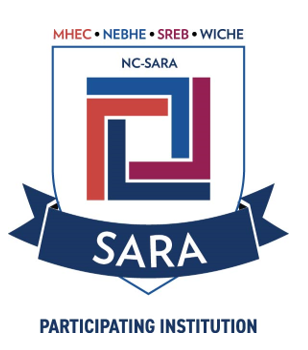University Compliance and Disclosure Statements
Equity in Athletics Disclosure Act
Statement on Compliance
Non-Discrimination Statement
Title IX
Professional Licensure Disclosure (including VA Educational Assistance Benefits Disclosure)
Title II Report on the Quality of Teacher Education
Annual Notice of Security and Fire Safety
Annual Notice of Drug-Free Schools and Communities Act Information
Annual Notice of Consumer Information and FERPA
Student Loan Code of Conduct
- The University of Mount Union is committed to providing students and their families with the best information and processing alternatives available regarding student borrowing. In support of this and to rule out any perceived or actual conflict of interest between University of Mount Union officers, employers or agents and private education loan lenders, University of Mount Union has adopted the following code of conduct:
- The University of Mount Union does not participate in any revenue-sharing arrangements with any private lender.
- The University of Mount Union does not permit any officer, employee or agent of the school who is employed in the financial aid office or is otherwise involved in the administration of education loans to accept any gifts of greater than a nominal value from any lender or servicer.
- University of Mount Union does not permit any officer, employee or agent of the school who is employed in the financial aid office or is otherwise involved in the administration of education loans to accept any fee, payment, or other financial benefit (including a stock purchase option) from a lender or affiliate of a lender as compensation for any type of consulting arrangement or contract to provide services to a lender or on behalf of a lender relating education loans.
- University of Mount Union does not permit any officer, employee or agent of the school who is employed in the financial aid office or is otherwise involved in the administration of education loans to accept anything of value from a lender, guarantor, or group of lenders and/or guarantors in exchange for service on an advisory board, commission or other group established by such a lender, guarantor group of lenders and/or guarantors. The University of Mount Union does allow for the reasonable reimbursement of expenses associated with participation in such boards, commissions or groups by lenders or groups of lenders.
- The University of Mount Union does not assign a private lender to any first-time borrower through financial aid packaging or any other means.
- The University of Mount Union recognizes that a borrower has the right to choose any private lender from which to borrow to finance his/her education. The University of Mount Union will not refuse to certify or otherwise deny or delay certification of a loan based on the borrower's selection of a private lender.
- The University of Mount Union will not request or accept any offer of funds to be used for private education loans to students from any lender in exchange for providing the lender with a specified number or volume of Title IV loans, or a preferred lender arrangement for Title IV loans.
- The University of Mount Union will not request or accept any assistance with call center or financial aid office staffing.

